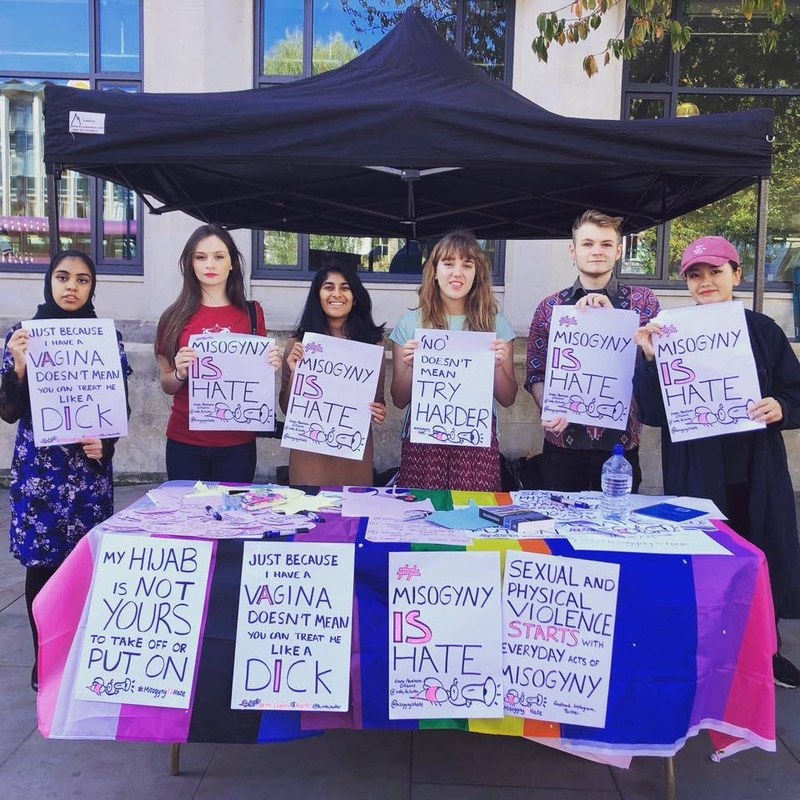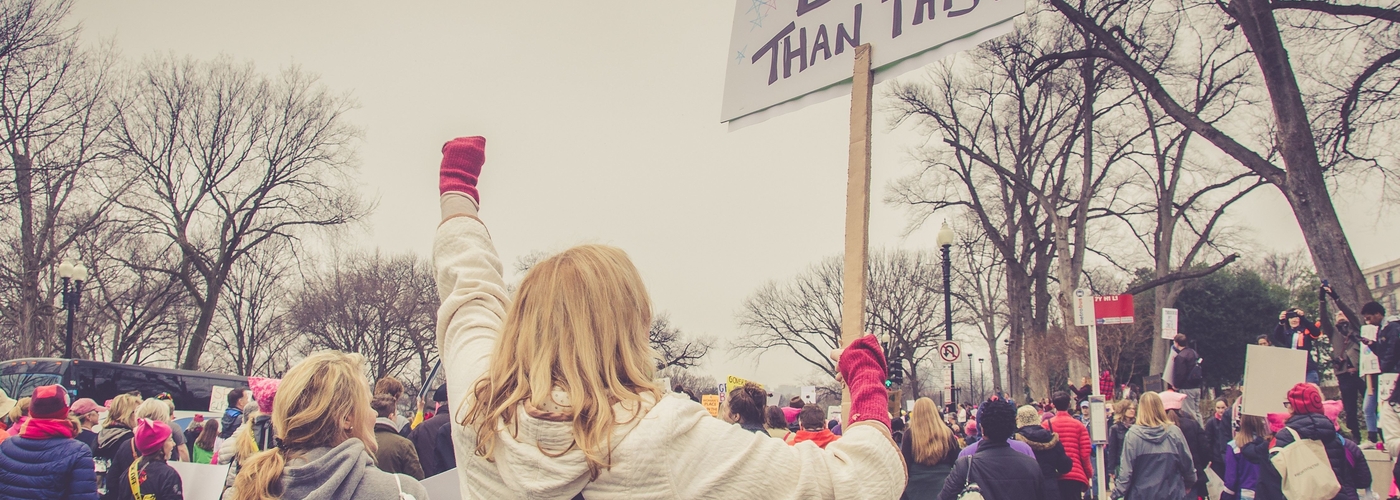Knot Our City event pays respects to victims of gender-based violence
Misogyny will be recorded as a hate crime by all police forces from this autumn. An amendment to the Domestic Abuse Bill will require all police forces in England and Wales to record where existing crimes have been motivated by hatred of someone’s sex or gender,
Currently, Greater Manchester Police recognises acts of hostility based on disability, race, religion, sexual orientation, transgender identity and alternative subcultures as a hate crime (this can include verbal abuse, intimidation, threats, harassment, assault and bullying, as well as damage to property). However, it does not recognise hostility based on sex or gender as a hate crime.
A government minister said that the data would initially be gathered “on an experimental basis”, pending recommendations for a longer-term solution from the Law Commission, which has conducted a review of hate crime legislation.
Some men, too many men, feel entitled to do or say whatever they wish to women and to harm them one way or another with impunity
There is no specific hate crime offence in England and Wales. Rather, when it can be proven that a crime is motivated by one of the above categories, judges have enhanced sentencing powers and can increase the punishment as a result.
By adopting misogyny as a hate crime, judges can take into account a perpetrator’s motivations. For example verbal abuse and harassment that contains misogynistic language may get an enhanced sentence.
The move came after a series of vigils and protests in memory of Sarah Everard.

Preventing gender-based abuse
Even before the amendment to the bill was introduced, Mayor Andy Burnham and Deputy Mayor Beverley Hughes had committed to making misogyny a hate crime in Greater Manchester.
In a press conference introducing the draft Gender Based Abuse strategy document, Baroness Beverley Hughes said: “The common thread that runs through all the different manifestations of violence against women and girls is the power differential that still exists between women and men; and the fact that as a result, some men, too many men, feel entitled to do or say whatever they wish to women and to harm them one way or another with impunity.
“We frequently hear this sense of entitlement amplified by powerful men, in business, in politics or as celebrities. Who boast in the media and the world stage about their ability to abuse women.
“Making misogyny a recordable hate crime is a key priority for me. Some police services are trialling this now and if the Government do not change the law to that effect then we in Greater Manchester will explore how far we can implement that change.
“I think it is vital for challenging attitudes and preventing gender-based abuse that we see misogyny for the hate crime that it is.”
Community leaders from @GMCitizens launched this campaign in 2018, following calls from women across Manchester and in admiration of the successes of @NottinghamCitz (2)
— Misogyny Is Hate (@MisogynyIsHate) March 17, 2021
pic.twitter.com/ZAdry5U1DB
— Misogyny Is Hate (@MisogynyIsHate) March 17, 2021
Manchester's Misogyny is Hate
As a recognised hate crime, misogynistic acts will be a recordable offence and police officers will be trained to deal with the sensitive nature of the crimes appropriately. As a result, victims will be encouraged to report their experience in the knowledge that their allegation will be taken seriously.
For those doubting that there is a problem, a survey by UN Women found that of the women surveyed (over 1,000 in total) 97 per cent of those aged 18 to 24 said they had been sexually harassed, while 80 per cent of women across all age groups reported experiencing sexual harassment in public.
Recording misogyny as a hate crime has already been trialled by 11 police forces, with indications that it improves outcomes in addressing the abuse and harassment of women and girls
The Manchester-based campaign group Misogyny is Hate, which was established by Sylvie Pope, Devi Joshi and Nimo Omer when they were students at the University, has worked for many years with GM Citizens and sister organisations in Nottingham to demonstrate that classification and recording is an important part of the process.
They said: “The conversation about whether it is important or not to record women and marginalised people’s experiences of hate crime is over. Now we can begin the work mapping male violence against women, preempting patterns of abuse and sending funding towards the most vital community services. This is just the start - the bare minimum. We need education, institutional reform, night time strategies that centre women, transport planning that understands what it feels like to be at risk of hate crime, and so much more.”
Knot Our City
On Monday 22 March 2021 at 6PM, Knot Our City will safely unify those who wish to grieve and actively pay their respects to all victims and survivors of violent or sexual criminal behaviour by tying ribbons as a symbol of solidarity. The peaceful act will take place at the main location, which is at St Peter's Square - and will be replicated across all Greater Manchester boroughs.
When attending the St Peter's Square visual display on Monday 22 March 2021 at 6PM, participants are encouraged to maintain social distancing throughout. Queuing in ones or twos (if part of the same household or support bubble), rather than in groups, is advised and preferred. A Track and Trace check-in QR code will be available on site for participants to scan accordingly.
A small number of pre-cut ribbons will be available for participants to collect for free from specific locations in the City Centre (the details of which can be found on our Instagram page). Participants are also welcome and encouraged to bring their own ribbons. The main colour theme will pay tribute to the Suffragettes colour scheme - purple for loyalty and dignity, white for purity, and green for hope. In line with this, Knot Our City is paying homage to Manchester's very own Emmeline Pankhurst by choosing St Peter's Square as the main location for this visual display.
Alice Woods from Knot Our City says: "We must be able to remember all women, and everyone who has survived an attack, and all the victims who have lost their lives as a result of violence perpetrated on our streets. This visual demonstration is symbolic of that: showing respect for those survivors and victims and taking control of our streets. Join us and tie a ribbon. And let's fight together for safe streets."
Follow @knotourcity on Instagram for the latest information and updates.














